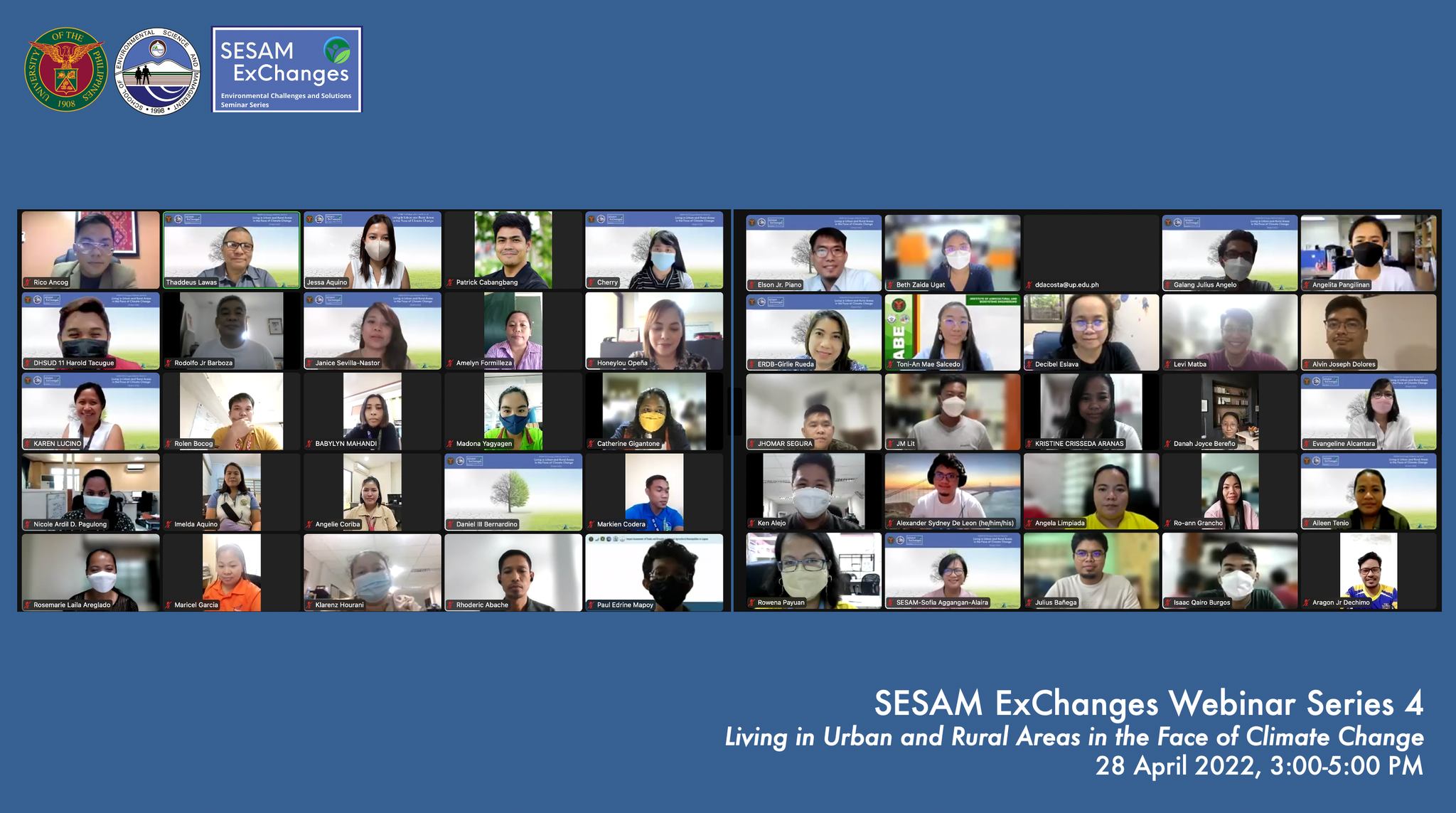The fourth SESAM ExChanges Webinar Series featured “Living in Urban and Rural Areas in the Face of Climate Change”, as the Continuing Education and Training Division (CETD) of the School of Environmental Science and Management-University of the Philippines Los Baños (SESAM-UPLB) invited two experts conducting studies in climate change and disaster risk reduction and management.
Environmental Planner Jose Bernardo B. Gochoco III, Project Officer, Adaptation and Disaster Risk Reduction & Management, International Council for Local Environmental Initiatives (ICLEI)-Local Governments for Sustainability Southeast Asia Secretariat, talked about climate change adaptation among cities in Southeast Asia. Meanwhile, Dr. Athur Mabiso, Senior Technical Specialist, Research and Impact Division, International Fund for Agricultural Development (IFAD) discussed climate change adaptation among rural communities in Asia and Africa.
EnP. Gochoco III, introduced ICLEI– which is a is a global network of more than 2,500 local and regional governments committed to sustainable urban development. Active in more 125 countries, ICLEI influenced sustainability policy and drive local action for low emission, nature-based, equitable, resilient and circular development.
In the overview of climate change impacts in Southeast Asia, EnP. Gochoco III said that cities and their surrounding regions are on the frontlines of global change. They are confronted by the impacts of rapid urbanization, demographic change, climate change, and technological advancements, among others. “As cities rise, grow and change, poverty and inequity remain, and natural systems degrade”, EnP. Gochoco III stressed.
“In this urban era, cities are centers of opportunity and prosperity. We need to harness this energy to reorient and rebalance the patterns of daily life, the built environment, and the natural systems in and around cities across the world”, EnP. Gochoco III, added.
For his part, Dr. Mabiso, who has an extensive research experience the areas of agricultural policy, rural investments, food security, health and nutrition, enumerated projects in rural areas of IFAD implemented in several countries, such as in the Philippines, Vietnam, India, Mauritania, Zambia, Malawi and Kenya.
In comparing the situation of the Philippines with other countries in Asia such as India and Vietnam, which has more hectarage and better irrigation, Dr. Mabiso said farmers in the Philippines, despite propagating high value crops, must consider off-farming activities or entering other sectors. “Some people must move out of agriculture and do other things that may support agriculture or not directly agriculture… and that is climate change adaptation” he said. Further, Dr. Mabiso mentioned there is also a need for the promotion of indirect activities that can support farming, such as how to bring products to the market or food processing.
Dr. Mabiso also said that we can embrace any technology and innovation that could help farmers increase yield in their production, however, we must also consider the risk and any challenges of any technology to help communities to thrive. He added that data analysis and evidence is critical and must always be the basis if the technology or innovation will work. ‘Technology is technology, it is there to help us to improve our lives and welfare”, he stressed.
SESAM ExChanges is an environmental challenges and solutions seminar series organized by CETD-SESAM. This fourth installment was held via Zoom and Facebook Live Streaming on April 28, 2022, with more than 200 participants from here and around the globe.

